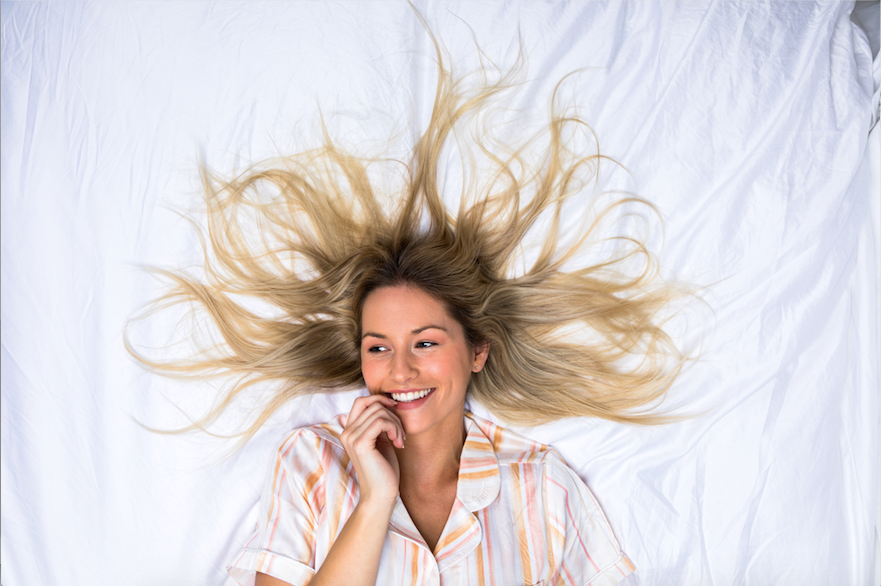How to easily fall (and stay) asleep

You’ve heard it all before – getting your eight hours of sleep is the key to health, happiness and everything in between. Which is probably the most frustrating thing to hear when you’re not one to sleep very well, or nod off easily. I have struggled with insomnia during different periods of my life. Consequently, what I have come to realise is that my lifestyle, stress levels and eating choices throughout the day all play a role towards a good night’s sleep.
So, from experience and much research, I’ve outlined some of the tricks you can use to fall, and stay, asleep.
Skip the afternoon caffeine hit
Caffeine functions as a stimulant and can stay in our systems for hours. Enjoy your daily cuppa before midday and stick to caffeine-free beverages afterwards.
Put your legs up against the wall
It’s as easy as it sounds. After a long day, this pose is the most relaxing for body and mind. Take 10 minutes and lay down, shuffle as close to a wall as is comfortable and then slide your legs up, allowing the weight of your legs to rest on the wall itself. Lay there and focus on breathing in through your nostrils and out through your mouth. This is an incredibly calming pose and soothes our nervous system.
Eat a balanced and wholesome dinner
Consuming a balanced meal that contains protein, fat and a complex carbohydrate source ensures you are not going to bed uncomfortably hungry. It’s best to have supper about 2-3 hours before you hit the hay, so your body doesn’t keep you up because it’s still digesting.
Switch off from technology 1-2 hours before bedtime
This can be hard at first (g’bye Insta-sessions right before bed) but is so important when it comes to sleep. Our phones and laptops emit blue light which can disrupt our sleep patterns. You also won’t be hit with a wave of FOMO before getting into bed, when you (don’t) witness your peers out on the dancefloor when you are jamming in Club Duvet.
Enjoy a cup of herbal tea
Many herbal teas contain compounds that help to calm our nervous system. There are specifically sleepy teas that include all the sleep-lovin’ good stuff like chamomile, lavender, passionflower and lemon balm.
Top Tip: Magnesium Glycinate
If you’ve implemented all of the above and still suffer from insomnia or difficulty falling asleep, supplementing with magnesium can be very beneficial during times of stress.
P.S. I love this very complete list of sleep tips (101, to be exact) from Slumber Yard, for more info.
Written by Nightire founder Nina Clark


